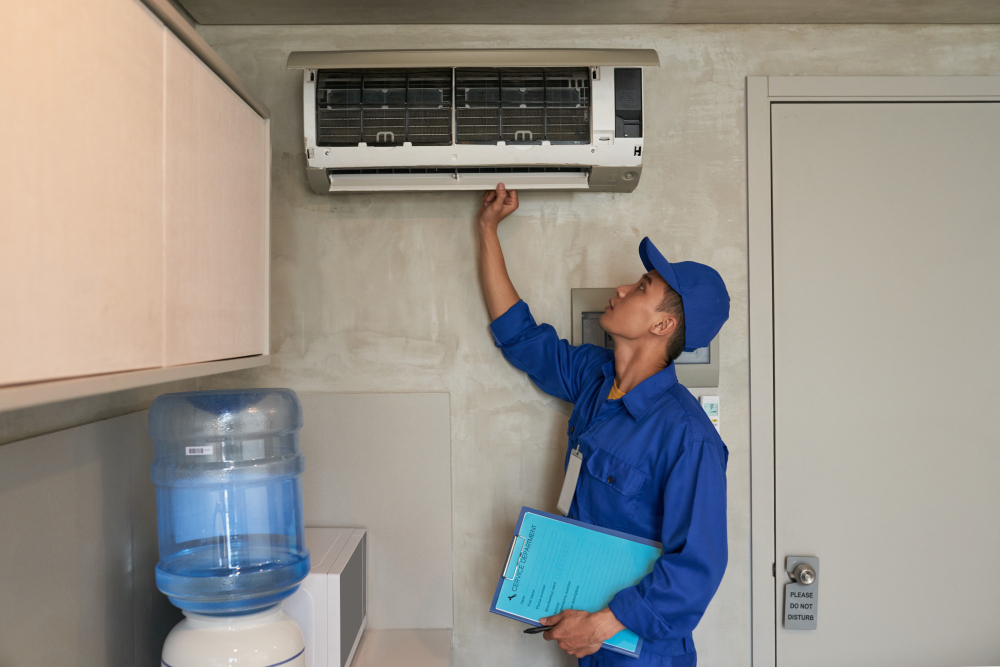Introduction:
When it comes to the comfort and well-being of your home, few systems play a more crucial role than your heating, ventilation, and air conditioning (HVAC) system. Over time, these systems can wear out, become less efficient, or even fail altogether, prompting the need for replacement. Navigating the process of HVAC replacement can be a daunting task, but with the right knowledge and considerations, you can make informed decisions to ensure a smooth and successful transition.
Assessment of Current HVAC System:
Before delving into the replacement process, it’s essential to assess the current state of your HVAC system. Evaluate its age, performance, and energy efficiency. An older system may be less energy-efficient and more prone to breakdowns, making replacement a wise investment in the long run.
Energy Efficiency Considerations:
Advancements in HVAC technology have led to more energy-efficient systems. When replacing your HVAC unit, prioritize models with high Seasonal Energy Efficiency Ratio (SEER) ratings for air conditioners and Heating Seasonal Performance Factor (HSPF) ratings for heat pumps. This not only reduces your carbon footprint but also leads to cost savings on your energy bills over time.
Proper Sizing:
Selecting the right size for your new HVAC system is critical. An undersized unit will struggle to meet your home’s heating and cooling demands, leading to increased wear and tear and higher energy bills. Conversely, an oversized unit may short cycle, resulting in inadequate dehumidification and uneven temperature distribution. Consulting with a professional HVAC contractor can help determine the appropriate size for your specific needs.
Type of HVAC System:
The type of HVAC system you choose depends on various factors, including your climate, budget, and preferences.
Common options include:
- Split Systems: Separate components for indoor and outdoor use, suitable for homes with existing ductwork.
- Ductless Mini-Split Systems: Ideal for homes without ductwork or for room-specific heating and cooling.
- Heat Pumps: Provide both heating and cooling by transferring heat between the indoor and outdoor units.
- Geothermal Systems: Utilize the earth’s constant temperature for highly efficient heating and cooling.
- Packaged Systems: All components are housed in a single unit, suitable for homes with limited indoor space.
Cost Considerations:
While the initial cost of HVAC replacement is a significant factor, it’s essential to consider the long-term savings and benefits of a more efficient system. Additionally, explore available rebates, tax credits, and financing options that can make upgrading to a high-efficiency system more affordable.
Professional Installation:
Proper installation is crucial for the optimal performance and longevity of your new HVAC system. Hiring a qualified and experienced HVAC contractor ensures that the installation is done correctly, adhering to local building codes and manufacturer guidelines. Professional installation also helps prevent issues such as leaks, improper airflow, and electrical problems.
Regular Maintenance:
Once your new HVAC system is in place, regular maintenance is key to preserving its efficiency and extending its lifespan. Schedule annual inspections, cleanings, and filter replacements to keep the system running smoothly and identify potential issues before they escalate.
Conclusion:
Navigating the essentials of HVAC replacement requires careful consideration of factors such as energy efficiency, system type, sizing, and professional installation. By making informed decisions and prioritizing long-term benefits, you can ensure a comfortable and energy-efficient home environment for years to come. Don’t hesitate to consult with HVAC professionals for personalized guidance tailored to your specific needs and circumstances.








